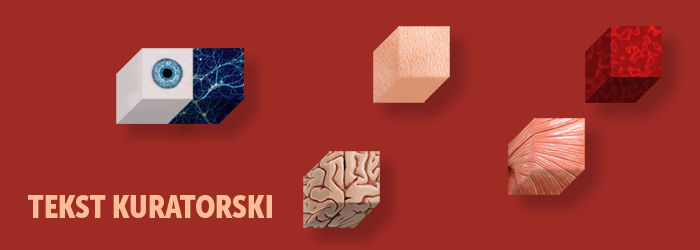Where is the line between repairing and enhancing the human body? This year’s Przemiany Festival will take a closer look at the prefix “super” as an expression of the spirit of our time (Zeitgeist), in which the future of homo sapiens is driven by the need for an increasingly efficient and longer life. Today, the latest achievements in regenerative medicine and robotics go hand in hand with the dynamic development of the fitness and well-being market. Are we ready for an intervention in the biochemical structure of our bodies and a technological upgrade? Do we want to cross physical and intellectual limitations to resemble the now-so-popular superheroes? After all, from the perspective of our bodies’ ecology, we are all “super” from the moment we are born. And this is by no means any individual’s personal accomplishment.
Even though we treat our body as personal property, it is, in fact, common property. The human body is a conglomerate of life, which – in addition to eukaryotic cells – consists of bacteria, fungi, archaea and viruses, i.e. our microbiome. This population of more than 100 trillion microorganisms, colonising virtually every external and internal surface of the body, makes the human an ecosystem as complex as a rainforest or a coral reef. It is estimated that 70-90% of all cells in the human body are bacteria, representing about 10,000 different species. This bacterial diversity shapes our biology from birth to the grave, affecting our health, metabolism and well-being. An imbalance can lead to disaster, one clear example of which can be seen in the growing antibiotic resistance caused by excessive and unjustified use of antibiotics in humans.
Thanks to its extraordinary biodiversity and importance for basic life processes, the microbiome challenges traditional categories of identity and, consequently, blurs the biological boundaries through which we define ourselves. Therefore, “I” becomes “we” – a living collective, a superorganism. Although this concept generally refers to specific species whose individuals form specialised groups, similar to organs in the body (this applies especially to colonies of social insects, such as ants or termites), increasingly, scientists postulate using the word ‘superorganism’ when referring to humans. We are “super” because we are a multiplicity based on symbiotic connections stretching back over billions of years of evolution. However, the vision of a superhuman does not end there.
Let us now move on from microbiology to the subject of human thought and imagination, which determines and guides the development of science. Mechanistic theories of nature dating back to the 16th century have accustomed us to perceiving the body as an extraordinary machine that – if well-oiled and maintained – could theoretically work indefinitely. In this view, the diseases we experience and, finally, death are the result of a technical malfunction – for example, the heart stops pumping blood, and the liver becomes fibrous and necrotic. Maybe we should, therefore, grow a replacement liver or design a new, improved version of the heart with a structure minimising the risk of embolism!
The impressive progress of genetic engineering, regenerative medicine, nanotechnology and robotics has set a new horizon in historical terms of the so-called assisted evolution. Research on stem cells, tissue and organ printing, as well as new drugs and gene therapies are becoming routine, eliminating further genetic diseases or helping body regeneration after serious injuries and diseases. At the same time, innovations in bionic prostheses and brain implants are bringing hope to countless people with disabilities. If we add to this the vision of millions of nanorobots circulating in our bloodstream, removing infections, fighting cancer cells or re-writing DNA, the future of our species looks more than optimistic. However, basic ethical questions also arise. Who will foremost benefit from the medicine of the future? Will we use new therapies and drugs only to fix defects, or will we use them to make a biochemical upgrade to the human machine?
Each of us carries an idea of the best version of ourselves, where we use our physical and intellectual potential to the fullest extent. In the pursuit of being “super”, we continue to cross biological and cultural boundaries. We want to be stronger, wiser, and live longer. We want to set new standards of vitality. With so many scientific tools at our disposal, it is worth pausing for a moment and – as if in addition to the great plans to strengthen and improve our bodies – thinking about what we should keep unaltered.
Przemiany is the laboratory of the future. A platform for sharing ideas between scientists, technologists, designers, artists and anyone interested in the possible directions of development on various levels of social life. This year, we invite everyone to reflect on the human body perceived as an information carrier, a network of interspecies connections and a brilliant biological machine. The Festival agenda includes interdisciplinary expert panels, debates on biohackers, soldiers and athletes of the future, film screenings, performances and an art & science exhibition. There will also be electronic music concerts with visualisations displayed on the planetarium dome, as well as meetings and workshops in the festival cafe. We will summarise the main themes of the festival at a special meeting attended by Jacek Dukaj, an outstanding sci-fi writer, and Jowita Michalska, the founder of Digital University.
See you all at the Przemiany Festival!
Rafał Kosewski
Curator of the Przemiany Festival

